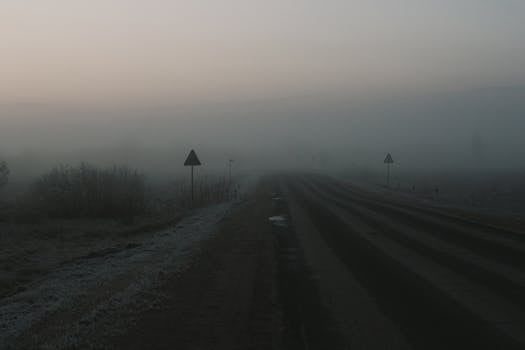
**
Are your kidneys sending you silent SOS signals? Kidney disease often progresses silently, making early detection crucial. Millions suffer from chronic kidney disease (CKD) without knowing it, until the damage is significant. Recognizing the early warning signs can be life-saving, allowing for timely intervention and slowing or even preventing further kidney damage. This article will explore eight key indicators that you might need to consult a nephrologist or your primary care physician for a kidney function test.
8 Early Warning Signs Your Kidneys Might Be in Trouble
Your kidneys are vital organs responsible for filtering waste and excess fluid from your blood, maintaining electrolyte balance, and regulating blood pressure. When they're not functioning optimally, several noticeable symptoms may appear. Ignoring these could lead to serious health complications, including kidney failure requiring dialysis or transplant. Let's delve into the eight early warning signs:
1. Changes in Urination Patterns: A Frequent Sign of Kidney Problems
This is perhaps the most common early warning sign. Pay close attention to:
- Frequent urination: Especially at night (nocturia).
- Increased urination volume: Producing significantly more urine than usual.
- Decreased urination volume: Producing less urine than normal (oliguria).
- Painful urination: Experiencing burning or discomfort during urination (dysuria).
- Foamy urine: This can indicate excess protein in your urine, a potential sign of kidney damage. This is often linked to kidney disease symptoms in men and women.
Any significant change in your urination habits warrants a visit to your doctor. These changes often reflect underlying issues, including kidney infections (acute kidney injury), kidney stones, or more serious kidney diseases like glomerulonephritis or polycystic kidney disease (PKD).
2. Swelling (Edema): Fluid Retention and Kidney Function
Fluid retention, often manifested as swelling in your:
- Feet and ankles: This is a common symptom, especially noticeable in the evenings.
- Legs: Swelling can extend up your legs.
- Hands and face: More generalized swelling might point to a broader problem.
Swelling is caused by your kidneys' inability to effectively remove excess fluid from your bloodstream. While swelling can have other causes, it's a crucial sign that shouldn't be dismissed. It is particularly important for people with diabetes, hypertension, and other underlying conditions to monitor for this symptom, as they are at higher risk of developing kidney disease.
3. Extreme Fatigue and Weakness: A Silent Cry for Help from Your Kidneys
Feeling constantly tired and weak, even after adequate sleep, can be a subtle yet important indication of kidney problems. This fatigue is often related to anemia, a common complication of CKD due to reduced erythropoietin production by the kidneys. Erythropoietin is a hormone responsible for red blood cell production. If you’re consistently experiencing unexplained fatigue, have your blood tested to assess your hemoglobin and hematocrit levels which helps detect anemia.
4. Persistent Itching: Uremic Pruritus and Kidney Function
Intense itching, also known as uremic pruritus, is a common symptom associated with kidney failure. As waste products build up in the bloodstream due to impaired kidney function, they can irritate the skin, leading to persistent itching that is often difficult to alleviate. This is an important symptom to pay attention to in the context of other kidney warning signs.
5. Persistent Headaches: A Warning Sign of Elevated Blood Pressure
High blood pressure (hypertension) is a common complication of chronic kidney disease and vice-versa. Persistent headaches, particularly severe ones, can be a symptom of elevated blood pressure. Kidneys play a critical role in regulating blood pressure, so impaired kidney function can lead to hypertension, resulting in frequent and intense headaches. Regular blood pressure monitoring is crucial, especially if you experience frequent headaches.
6. Shortness of Breath: A Sign of Fluid Buildup in the Lungs
If your kidneys are not functioning properly, fluid can build up in your lungs, causing shortness of breath. This is a more advanced symptom of kidney disease, often associated with fluid overload. It is critical to seek immediate medical attention if you experience shortness of breath alongside other kidney-related symptoms.
7. Metallic Taste in the Mouth: A Subtle Indicator of Kidney Issues
A persistent metallic taste in the mouth can be an unusual but significant indicator of kidney dysfunction. This is due to the accumulation of toxins in the bloodstream that are normally filtered by healthy kidneys.
8. Muscle Cramps and Bone Pain: Mineral and Bone Disorder (MBD)
Muscle cramps and bone pain can be symptoms of a mineral and bone disorder (MBD) associated with chronic kidney disease. Kidneys play a crucial role in regulating calcium and phosphorus levels; when these are imbalanced due to kidney dysfunction, it can lead to bone pain, muscle weakness, and even fractures.
When to See a Doctor: Kidney Function Tests and Early Diagnosis
If you experience one or more of these symptoms, it's crucial to schedule an appointment with your doctor. Early detection of kidney problems is vital for effective management and prevention of irreversible damage. Your doctor will likely conduct a comprehensive medical history, physical examination, and order blood tests, including a blood urea nitrogen (BUN) test and creatinine test, to assess your kidney function. They may also order a urine test to check for protein, blood, or other abnormalities.
Remember, early intervention is key when it comes to kidney health. Don’t ignore these early warning signs. Taking proactive steps toward maintaining your kidney health can significantly improve your overall well-being and quality of life. Discuss your concerns with your healthcare provider to receive proper diagnosis and treatment. Early diagnosis and treatment of kidney issues can prevent serious complications and help ensure a better health outlook.




















